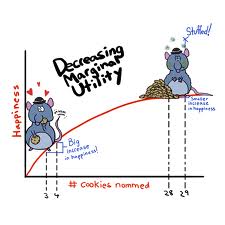This is one of the most important articles I’ve seen yet on the future of Obamacare: Health Care Law Fails to Lower Prices in Rural Areas.
This article addresses actual flaws in the law’s effects. (That is, it is NOT about how bad the website is, and this is why I found it worth reading.) Overall, I think Obamacare will benefit the country, but I hope we take concerns like this seriously. Here is your vocab du jour:

Monopoly (power)!
Monopoly: A situation in which a single company or group owns all or nearly all of the market for a given type of product or service. By definition, monopoly is characterized by an absence of competition, which often results in high prices and inferior products.
As I see it, the intent of the health care exchanges to weaken insurance companies’ leverage over their customers by creating competition between insurers. If a rural county is served by only one insurer, they can exert monopoly forces over the market. That is, they can afford to jack up prices at the expense of losing a few customers. Basic economic theory tells us, essentially, that too little of a service is provided, it is provided at too high of a cost, and it is often of a lower quality.
In a market where insurance is mandated by law, the effect is worse. If there are no other alternatives (other than facing penalties), more people will sign up for health care than they would in a market in which they are free to take or leave the service. At best, it’s good for health care numbers, but economically it’s worse than a simple monopoly.
There are multiple possible solutions. One, from the article, is to provide “multistate” plans. Essentially, it is a option provided by the federal government. However, as law professor Timothy Jost points out, the multistate plans are often the same one as the county’s single insurer: “If you’ve got Blue Cross competing with Blue Cross, it doesn’t give you much competition.” So we’d need at least two insurers to compete in multistate plans to make sure there are two different companies (at least) competing in any given county, and the monopoly is actually broken up.

Why barriers to entry are dangerous.
Another possibility is the co-op (“consumer operated”). The idea is that even if the insurers don’t think the market in a rural county is big enough to be worth their while, the people living there still care a lot about how much they pay for health insurance. If they can provide it at lower cost by pooling their resources—with the help of some federal funding—consumers will choose that option and put downward pressure on prices in their market. The co-op illustrates an important point about monopolies: they can only hold on to their control of the market when other firms face barriers to entry into a market.
Whatever else Obamacare does, the online system is doing its best to eliminate barriers to entry by allowing consumers to view and sign up for plans offered by smaller providers and co-ops. In the long run, I would not expect monopolies to survive in an open market, because another corporation or a co-op would enter the market.
The question is what to do until then. I would suggest deferring the insurance mandate for single-provider counties to give them enough time to produce (at the very least) two providers. This would allow consumers to avoid getting the bad end of a monopoly deal, and may even exert downward pressure on the cost of health care until then.
Obamacare is chipping away at the power of health care and health insurance providers over their customers, but there is still much work to be done. Hopefully, we will see the value in keeping our population healthy and continue to improve it, not try and dismantle it.


